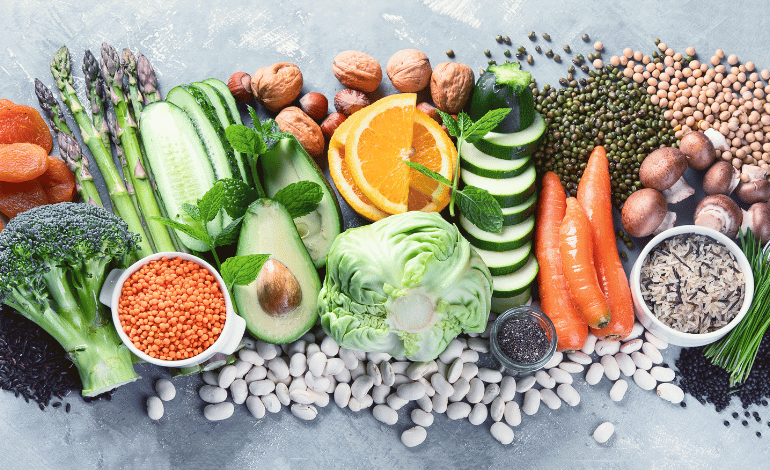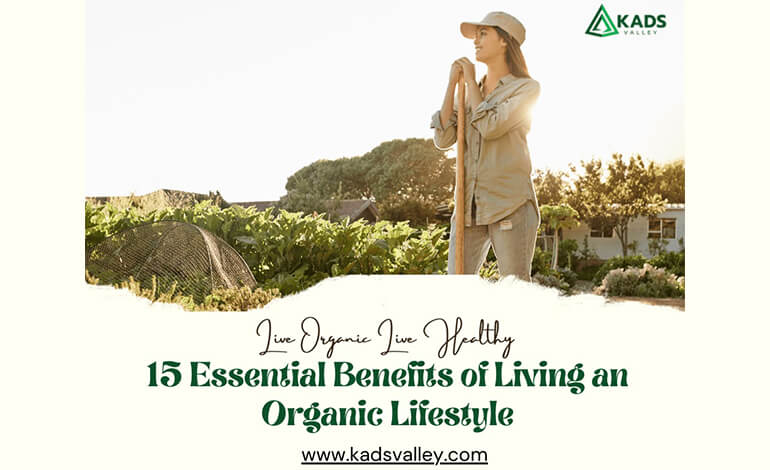Organic Food: Benefits and Tips

Organic Food: Benefits and Tips: Organic foods have become increasingly popular in recent years as people become more health-conscious and aware of the environmental impact of food production. An organic diet consists of foods that are grown or raised without the use of synthetic pesticides, fertilizers, genetically modified organisms (GMOs), or other harmful chemicals. In this article, we will explore the benefits of an organic diet and provide tips on how to incorporate it into your daily life.
Benefits of an Organic Diet
1. Improved Nutritional Value
Organic foods are often richer in nutrients compared to conventionally grown foods. This is because organic farmers focus on building soil health, which results in nutrient-rich produce. Organic fruits and vegetables are often higher in vitamin C, iron, and magnesium compared to conventionally grown counterparts.
2. Reduced Exposure to Pesticides
Pesticides are widely used in conventional farming to protect crops from pests and diseases. However, these chemicals can be harmful to human health, especially if consumed regularly. An organic diet reduces exposure to pesticides, which can lower the risk of chronic diseases such as cancer, Parkinson’s disease, and infertility.
3. Better for the Environment
Organic farming practices are better for the environment because they minimize the use of harmful chemicals and promote biodiversity. Organic farms use natural methods to control pests and diseases, such as crop rotation, natural predators, and composting. This helps to maintain soil health and prevent soil erosion, which is important for long-term sustainability.
4. Supports Local Farmers
When you buy organic foods, you are supporting local farmers who use sustainable farming practices. This helps to strengthen local food systems and reduce the carbon footprint associated with transporting food over long distances. By supporting local farmers, you can also help to preserve farmland and protect the environment.
Tips for Incorporating an Organic Diet

1. Start Small
Incorporating an organic diet into your daily life doesn’t have to be overwhelming. Start by making small changes, such as buying organic fruits and vegetables or switching to organic milk. As you become more comfortable with organic foods, you can gradually incorporate more into your diet.
2. Shop at Local Farmers Markets
One of the best ways to find organic foods is to shop at local farmers markets. Not only will you be supporting local farmers, but you’ll also have access to fresh, seasonal produce. Many farmers markets also offer organic meats, dairy products, and grains, making it easier to find a variety of organic foods.
3. Grow Your Own Food
Growing your own food is a great way to ensure that you’re eating organic produce. You don’t need a large garden to get started – even a small balcony or patio can be used to grow herbs or vegetables. Growing your own food also helps you to connect with nature and appreciate the work that goes into producing food.
4. Choose Organic Foods that Matter
If you’re on a tight budget, you may not be able to buy all organic foods. In this case, focus on buying organic foods that matter most. For example, certain fruits and vegetables tend to have higher levels of pesticides, so it may be worth prioritizing these items. The Environmental Working Group produces an annual “Dirty Dozen” list of the most heavily sprayed produce, which can help you prioritize your organic purchases.
5. Prepare Your Own Meals
Preparing your own meals is one of the best ways to ensure that you’re eating organic foods. When you cook at home, you can control the ingredients and choose organic foods whenever possible. This also helps you to avoid processed foods, which are often made with synthetic additives and preservatives.
Conclusion
An organic diet offers many benefits, including improved nutritional value, reduced exposure to pesticides, and better environmental sustainability. By incorporating organic foods into your diet, you can support local farmers, reduce your carbon footprint, and improve your overall health. With these tips, it’s easy to start incorporating organic foods into your daily life.
Remember, it’s not about being perfect or buying everything organic. Making small changes and prioritizing the foods that matter most can have a significant impact on your health and the environment. By shopping at local farmers markets, growing your own food, and preparing your own meals, you can enjoy the many benefits of an organic diet while also supporting sustainable food systems.
It’s also important to note that while an organic diet offers many benefits, it’s not a silver bullet for optimal health. It’s still important to maintain a balanced diet with plenty of fruits, vegetables, whole grains, and lean protein. By combining an organic diet with healthy lifestyle habits, you can achieve optimal health and wellness.
In conclusion, an organic diet offers many benefits for both your health and the environment. By making small changes and prioritizing the foods that matter most, you can start incorporating organic foods into your daily life. Remember to shop at local farmers markets, grow your own food, and prepare your own meals to support sustainable food systems and achieve optimal health and wellness.
FAQS
Q1. What is organic food?
Ans. Organic food refers to food produced without the use of synthetic pesticides, fertilizers, or genetically modified organisms (GMOs). It is produced using sustainable farming practices that prioritize soil health, biodiversity, and animal welfare.
Q2. What are the benefits of eating organic food?
Ans. Eating organic food offers many benefits, including reduced exposure to pesticides and other harmful chemicals, higher levels of nutrients and antioxidants, improved taste and quality, and support for sustainable and local food systems.
Q3. Is organic food more expensive than conventional food?
Ans. Yes, organic food is typically more expensive than conventionally produced food. This is due to the higher cost of sustainable farming practices and the smaller scale of organic farms. However, many people believe the benefits of organic food outweigh the higher cost.
Q4. Where can I buy organic food?
Ans. Organic food can be found at many grocery stores, health food stores, and farmers markets. You can also grow your own organic food at home by starting a garden or joining a community garden.
Q5. Are all organic foods equally healthy?
Ans. While all organic foods are produced without synthetic pesticides and fertilizers, they may still vary in their nutrient content and overall health benefits. It’s important to prioritize a balanced diet with plenty of fruits, vegetables, whole grains, and lean protein, whether they are organic or not.
Q6. Can I trust organic food labels?
Ans. Organic food labels are regulated by the USDA and must meet strict standards for organic certification. Look for the USDA Organic seal on food packaging to ensure that it is certified organic. However, it’s still important to read food labels carefully and understand the ingredients and farming practices used to produce the food you are buying.








